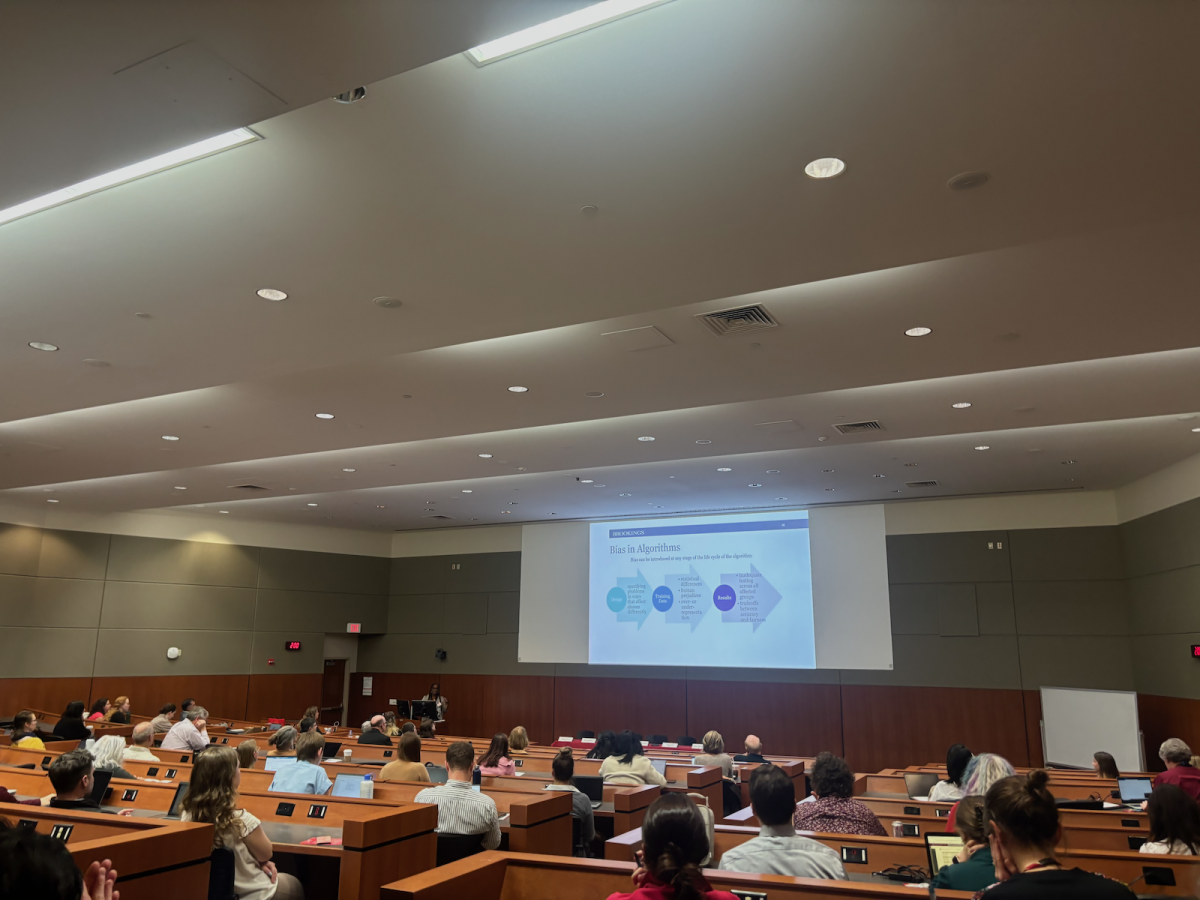The change in mind this election year isn?t a revolution; it?s not a complete overhaul of American foreign policy, and it?s not universal health care. At least, not according to Barack Obama. Instead, the ever-inspiring and optimism-saturated senator has pushed a far fuzzier message: Come together. Smile on your brother. Kumbayah.
The message may not be quite that happy-go-lucky, but it?s certainly just as idealistic. After decades of Democratic and Republican wrangling and no third party in sight, Mr. Obama has made his hope and vision a little less vague, by saying he will be the ?post-partisan? candidate that will bring American government together and chart a course for an equally unified America.
Unfortunately, those are two completely different kinds of America.
Our nation?s lawmakers don?t think in terms of rosy handholding and free love. To Washington, change means compromise instead of gridlock. While those frustrated with stagnation in Washington may be encouraged to vote for a candidate who pushes forward a message of widespread change, that thinking could have disastrous effects. That?s because the success of change doesn?t just depend on the commander in chief?s initiative, but also on who he or she works with to make that change. If another Republican enters the Oval Office, we may have more change than certain Democrats can provide. That?s because, despite its name, divided government is the only path for meaningful progress, especially given how ?change? has ravaged this country at times.
In the last 50 years, divided government has been relatively common. During the ?50s, a combination of the Democratic Legislature and Republican executive resulted in an end to the Korean War, incredibly low rates of inflation and only minimal flare-ups in the Cold War. When united government resurfaced, it led to high inflation, expansive foreign policy disasters ? Vietnam, of course ? and a rebellious counterculture that derailed the legitimacy of the President Lyndon Johnson and cut the ?Great Society? short. It took divided government, along with a secretive Nixon administration, to restore order and reduce a national crisis to a cultural hangover. It may not have looked pretty the way it happened ? especially when the president and secretary of state aren?t exactly choirboys ? but it did stop the bleeding before a second unified government under the Carter administration lost the plot again.
The same sort of stability occurred during the Clinton presidency ? low inflation, low unemployment, economic prosperity along with relative peace in terms of foreign policy. However, the pitfalls of unified government revealed themselves again during the six years of Republican control.
Now, with a Democratic Congress, gridlock has returned, and the electorate seems poised to reverse most of the right-wing agenda with a unified Democratic government.
What a mistake that would be.
Despite having the greatest ability to effect change, the fact of the matter is that, unified government results in governmental inertia. After years of rallying against the more liberal of Clinton?s policies, George W. Bush and Sept. 11 gave the Republican Congress free rein to remake the country as they saw fit. With six years of unopposed ?progress,? foreign policy has run out of control while our economy and environment have been left to languish.
It?s easy to pin this on Mr. Bush. After all, he seems to be the biggest catalyst for all this change. However, without any legislative conscience, any president can treat the country like his or her political dollhouse. If the frustration of the Democratic Senate and House of Representatives is any reflection, bipartisan change is not what?s on the agenda for John Edwards or Hillary Clinton. Both have fairly similar plans on how to alter the course of this nation ? universal health care, more restrictive trade policies, ending the war in Iraq ? but the lengths that each of them are willing to take them is what could make or break our government. With Ms. Clinton and Mr. Edwards waiting in the wings to slay the war hawks and the liberal bogeyman of corporate greed, their vitriol toward the right might result in a unified government that turns on tunnel vision once again, just in the opposite direction.
In that sense, a Republican president may not be the worst decision for America at this point. Sen. John McCain may now be pandering to the conservative base, but if he decides to once again take up the banner of Goldwater Republicans, he could provide a perfect complement to a visibly frustrated Democratic congress.
Skepticism of Mr. Obama?s ?post-partisan? politics is partially developed out of a sinister second meaning appropriated by bandwagon ?agents of change? ? pushing an agenda through a unified government with little to no opposition. It?s not partisan because there is only one side. Yes, they could get a lot done. They could also do a lot of damage. If the latter happens, the resulting voter revulsion might just turn this generation?s ?agents of change? into a new counterculture. Then ? for better or worse ? you?ll have your revolution.
Change is a fine idea, as long as we know how to execute it. While we may be swayed by talk of hope, vision, experience and change, understand that it all has to produce the same result: progress.
Jason Smathers ([email protected]) is a senior majoring in history and journalism.














